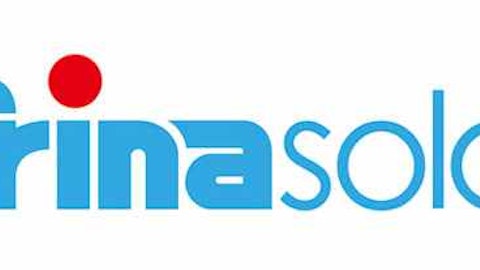The U.S. Producer Price Index signaled deflation in April, industrial production dipped 0.5%, and eurozone GDP clocked in at a worse-than-expected 0.2% contraction in the first quarter — and yet the broad-based S&P 500 hit a record high yesterday. For skeptics like me, that’s an opportunity to see whether companies have earned their current valuations.
Keep in mind that some companies deserve their current valuations. U.S. solar panel producer SunPower Corporation (NASDAQ:SPWR) rallied to a new 52-week high following forecasts for the remainder of the year that exceeded the Street’s estimates. SunPower Corporation (NASDAQ:SPWR)’s solar panels are the most efficient in the industry, and the added tariff protection put in place by the U.S. government on Chinese imports is proving crippling to China’s solar sector while adding to SunPower Corporation (NASDAQ:SPWR)’s bottom-line profits.
Still, other companies might deserve a kick in the pants. Consider this a redemption week, as I’ll be highlighting three companies I’ve been wrong on thus far that still look like great sell candidates.

There isn’t an emoticon that can properly sum up the dumbfounded look I have on my face at the moment. Tesla Motors Inc (NASDAQ:TSLA) shares have tripled since the year began following the company’s first-ever quarterly profit and slightly boosted annual production forecast for the Model S to 21,000 units from 20,000. CEO Elon Musk also invigorated shareholders last night by announcing that he’ll be purchasing $100 million in common shares as part of a mixed cash and debt offering meant to prepay the U.S. government.
In spite of this news, Tesla Motors Inc (NASDAQ:TSLA) has shot up my list of top short-sale candidates and now sits at the head of the class. Sporting a whopping $10 billion valuation, Tesla Motors Inc (NASDAQ:TSLA) has only managed to hit its production targets a few times in the past two years, with multiple delays along the way — even for the Model S. Its Model X SUV was originally supposed to debut in late 2013, but has been pushed back an entire year to 2014. Tesla Motors Inc (NASDAQ:TSLA) has shown a history of inconsistency with regard to meeting existing production demands, so just imagine how interesting things could get when it tries to expand that production line upward from 20,000 units annually.
There’s also the little fact that Tesla Motors Inc (NASDAQ:TSLA)’s peers aren’t going to go quietly into the night. Ford Motor Company (NYSE:F)’s total car sales rose 21.2% in April as its entire line of cars and trucks demonstrated growth. Between its turbocharged EcoBoost engines, which are providing considerably better fuel economy than much of its competition, and its infiltration into China’s rapidly growing auto market, it’s a company that’ll be tough to displace, even for Tesla.
Finally, it’s all about Tesla’s almost laughable valuation. Do you really want to invest in a company trading at nearly 80 times forward earnings, 10 times sales, and 57 times book that’s had a history of failing to meet its own expectations? Thanks, but no thanks!
Netflix, Inc. (NASDAQ:NFLX)
I have to eat crow and admit that Netflix, Inc. (NASDAQ:NFLX)’s most recent quarter was another gem. Netflix, Inc. (NASDAQ:NFLX) easily topped analyst expectations by delivering subscriber growth of 2 million people in the U.S. and an additional 1 million overseas as it used a new deal with The Walt Disney Company (NYSE:DIS) to grow its digital library and move into more family living rooms.
It isn’t the convenience that I’d argue against that makes Netflix, Inc. (NASDAQ:NFLX) a scary investment at these levels, but the company’s valuation and the very likely prospect of growing competition and content costs that worry me.
I’ve long contended that Amazon.com, Inc. (NASDAQ:AMZN) is in far better financial shape to negotiate content deals moving forward. Netflix, Inc. (NASDAQ:NFLX) definitely has a “one-up” on Amazon.com, Inc. (NASDAQ:AMZN) with regard to overseas expansion, but Amazon has tie-ins well beyond just streaming content as a marketplace and cloud-based service provider that should encourage customer loyalty to the brand.

